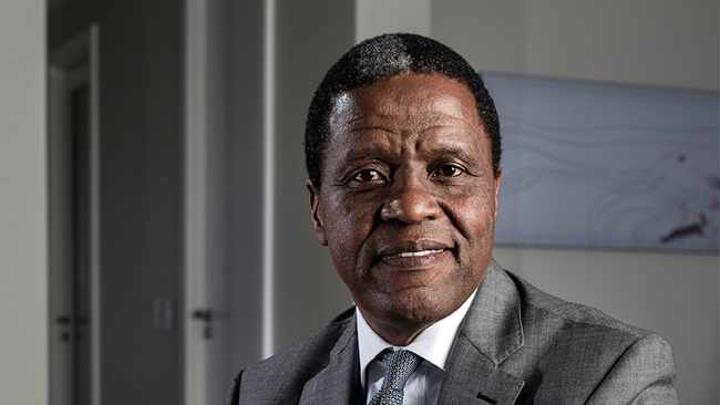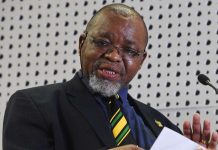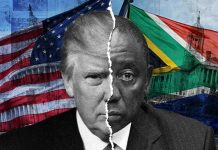Africa-Press – South-Africa. OPINION: We are wrestling with persistent social ills, political fracture and economic stagnation, while fighting endemic corruption
by Vusi Khanyile
I am honoured to contribute to these proceedings, recognising the immense responsibility we all share – of reflecting at this crucial time on the state of public integrity in South Africa.
We meet at a moment in the evolution of our proud nation, when the very foundations of our society, the bedrock of our constitutional democracy are being tested.
A quarter of a century into our democratic journey, we are wrestling with persistent social ills, political fracture and economic stagnation, while fighting endemic corruption.
These phenomena place our collective future at risk.
Times such as these, represent moments of great peril, but also of promise.
For in times such as these, when leaders are feeble, when institutions falter, when progress is forestalled, hope and courage must arise anew.
It is, when the creative potential of our national systems seem most weakened, that we must regain our strength and revisit our founding vision:
– Our vision of a new and better South Africa.
– A South Africa founded on the rule of law and on the rights of every individual.
– A South Africa founded on the idea and indeed the ideal, that we can become a more equitable society, and rise from the ruins of our past.
To realise our dream, we must behold anew the vision of a nation marked by high standards of public integrity, upheld in service of the common good.
A country is made of its territory, but a nation is made of its people and the manner in which they conduct their affairs.
As South Africa, we have committed ourselves to a constitutional dispensation.
We have chosen the rule of law above violence and anarchy.
We have chosen the common good over our individual or self-interest.
But, as a nation, have we truly chosen this high road?
The test of our public integrity is whether the norms of our society are aligned with the high standards, ethics and morals we espouse.
Whether the governance patterns, not only in our formal processes and codified documents, but whether we uphold our commitment to governance in the day-to-day expression of our actions.
The experience of the democratic years to date, and of the last decade in particular, have tested our resolve in these matters. In many instances, they have tested our joint and respective commitments, and too often, we have been found wanting.
What is the state of public integrity in South Africa?
We might look to the report of the Auditor General, to ascertain the degree to which our public coffers are being stewarded in the interests of our society.
We might look to the general state of our national fiscus and the allocation of our public purse, and note that our debts and dependencies are growing, even as our revenues and economic capacity declines.
We might look further still at the degree to which resources, meant for the most basic services in local government, reach their intended beneficiaries.
In all these instances we see an emerging pattern of a public sector beset with a lack of integrity.
A basic lack of the will and capacity to adhere to the rules set out in our laws, regulations and the guidelines of public procurement.
The auditor-general informs us that while efforts are afoot to improve the real-time performance of audits, wasteful and irregular expenditure has in fact increased in most public institutions.
Of supreme concern is the persistence of the mismanagement of resources in our education system, and the deepening of corruption in the SAPS.
The SAPS, tasked with protecting our communities, cannot be the scene of ill-discipline and lawlessness, if we are to realise the dream of a crime free society.
Likewise, our schools, the spaces meant for nurturing our young minds for personal development and learning, cannot be left to become overgrown by self-enrichment at the cost of our future.
The horrendous greed demonstrated by the misuse of public monies during the Covid-19 pandemic, testify to the decline of public integrity.
There are glimmers of hope
Friends, these dark blotches on our national record should upset us greatly. But they should not leave us hopeless.
One of the many wonders of South Africa is that amid the darkness of our past and of these present difficulties, we remain a stubbornly hopeful people. We remain a people committed to overcoming our societal ills.
We remain committed to bringing into the light, into the realm of public judgement, the wrongs in our society.
The reason we know about our deficiencies as a society, is our willingness to investigate them, to report them and to discuss them.
Indeed, as Professor Somadoda Fikeni says, “South Africa is a noisy democracy”.
We are a democracy which cries out – no more, and not in our name!
This is evidenced by the Zondo commission, which the World Bank ranks as the most transparent judicial enquiry initiated by a sitting president anywhere in the democratic world.
Between 2021 and 2022 we will likely witness a significant political realignment in the democratic life of our nation.
The degree to which we reform in matters of public integrity, will determine where we stand at the end of this process.
I am again inspired by the words of Oliver Tambo:
“We seek to create a united democratic and non-racial society.
“We have a vision of South Africa in which black and white shall live and work together as equals in conditions of peace and prosperity… a nation of which all of humanity can be proud.”
Indeed, my compatriots, for us to build a nation of which all of humanity can be proud, we must take up this challenge, to make public integrity the cornerstone of a new dispensation of efficient and effective governance. We must do so in service of the common good.
This is an edited version of the speech delivered at the Integritasza Conference in Wellington, Cape Town.
* Khanyile is the chairperson of the Inclusive Society Institute
For More News And Analysis About South-Africa Follow Africa-Press






